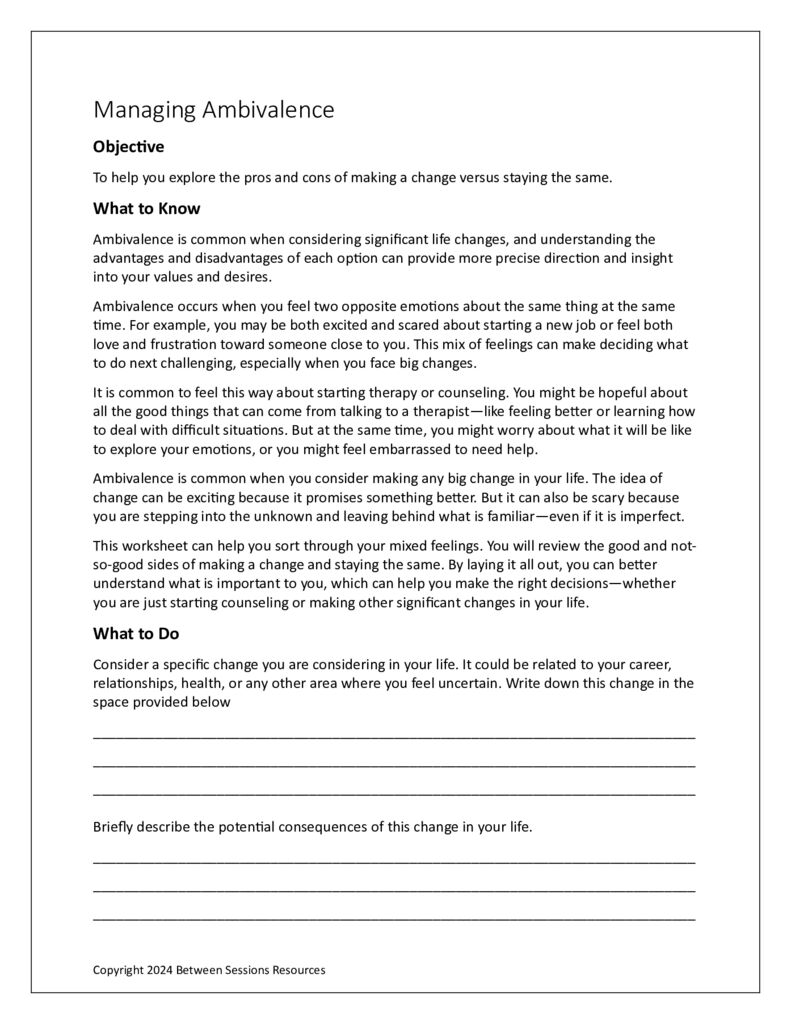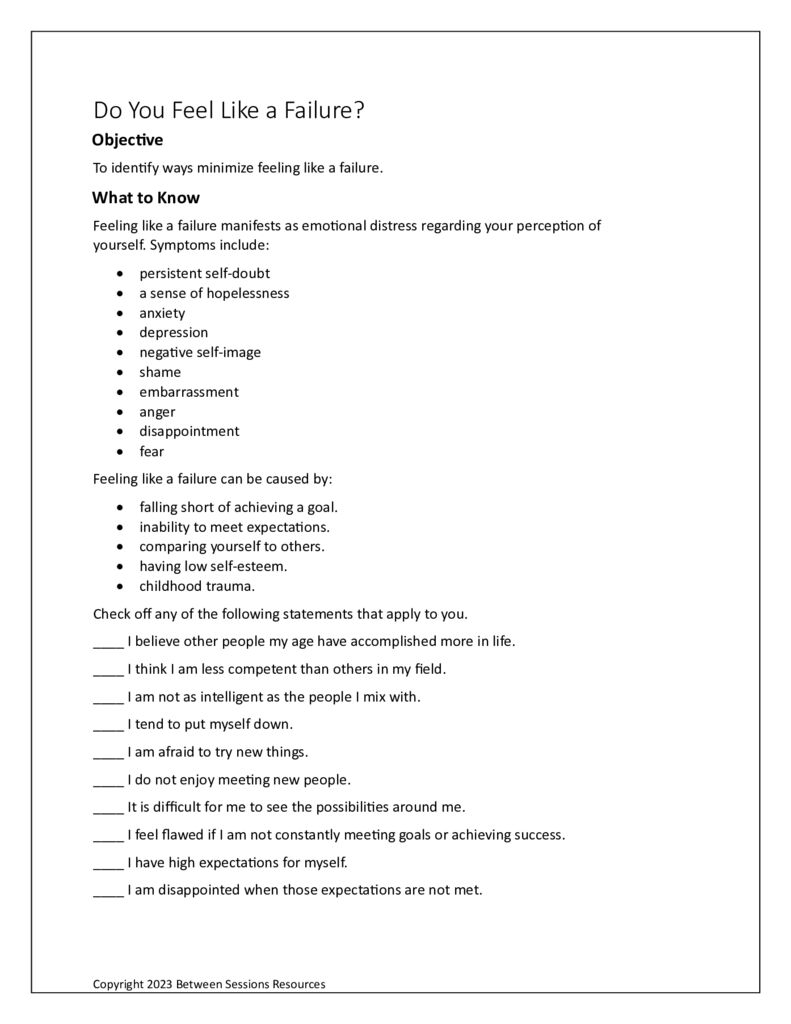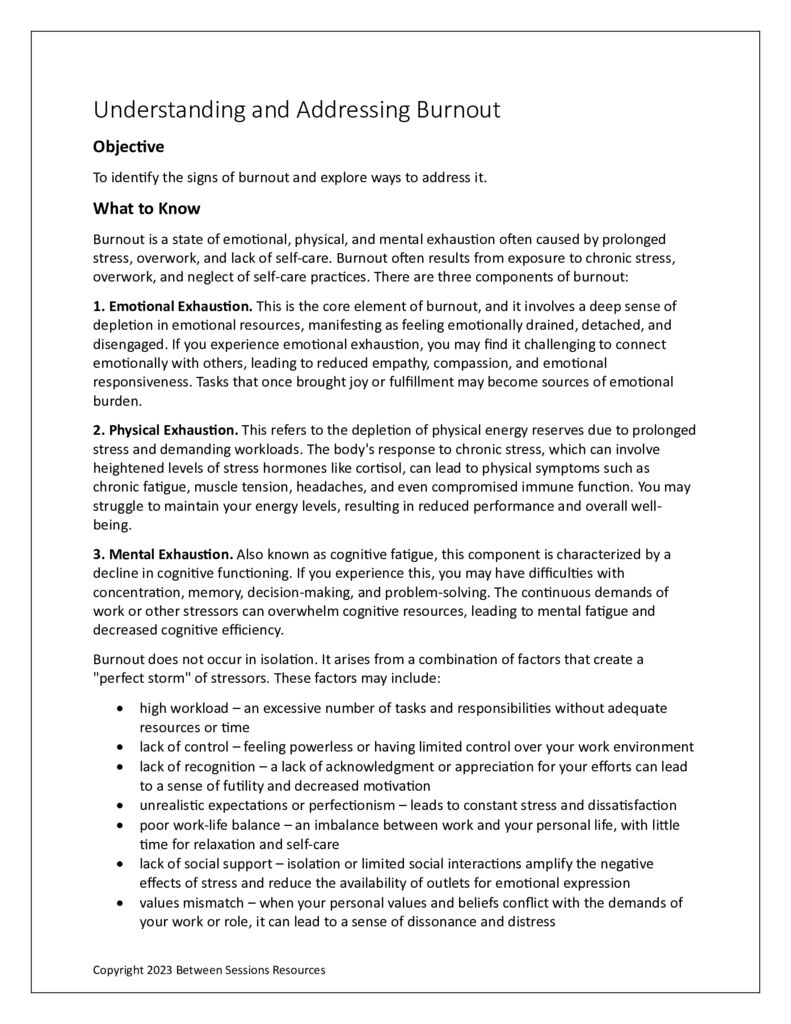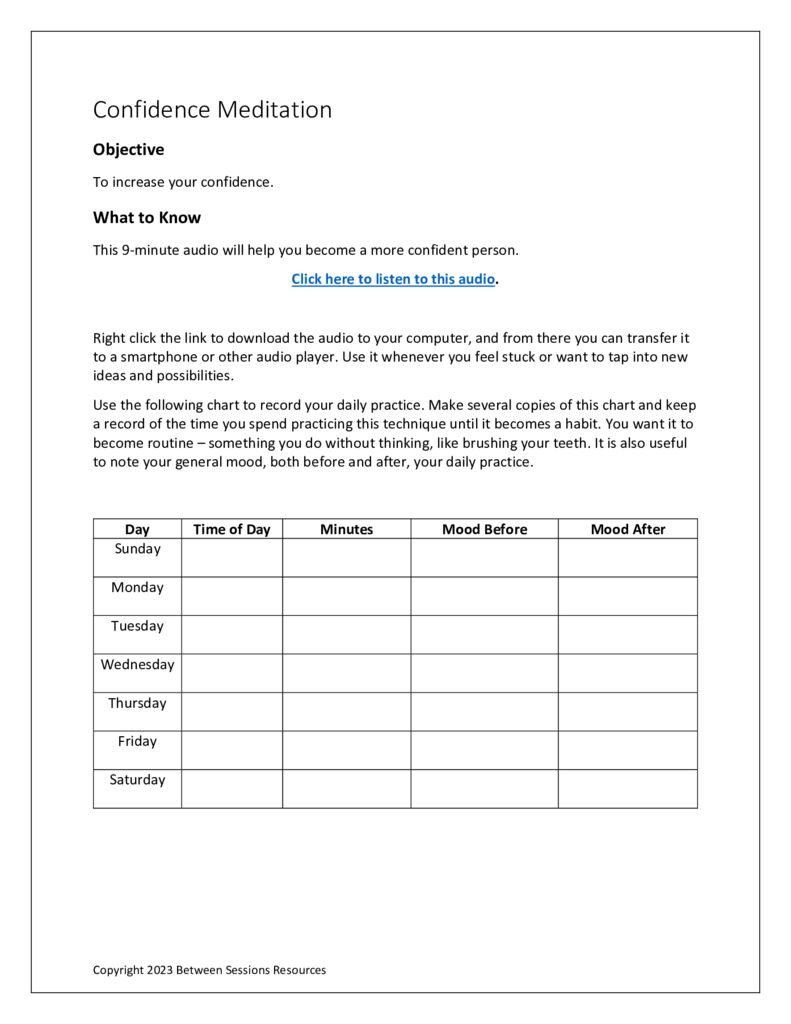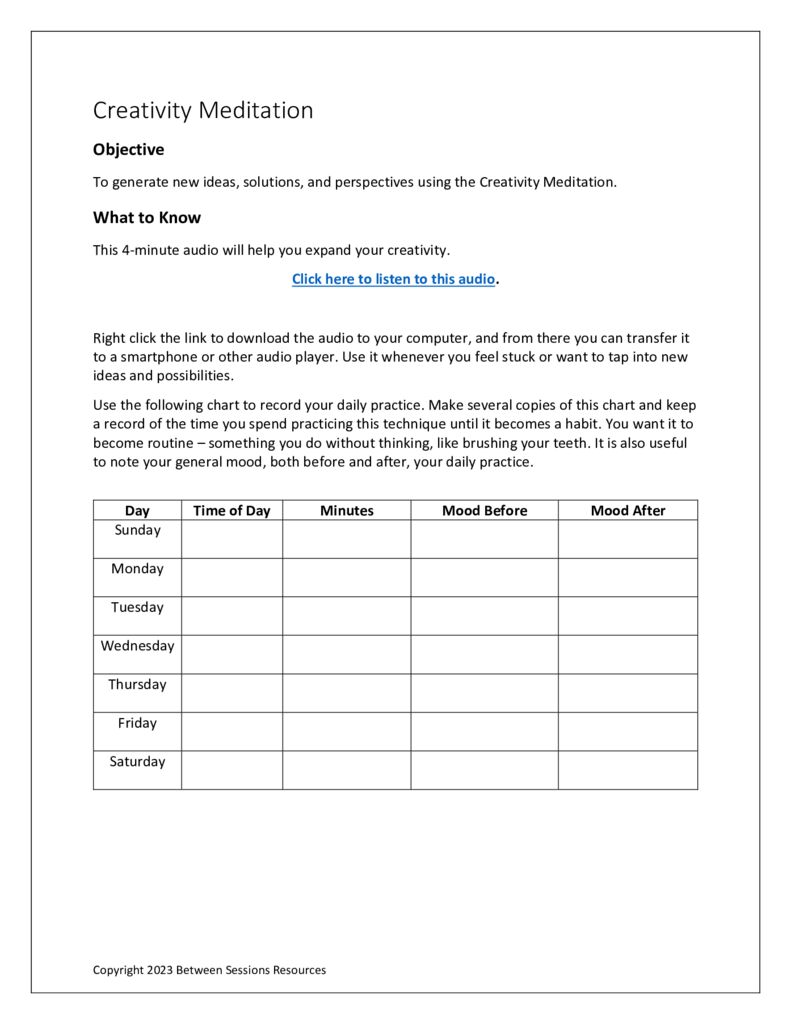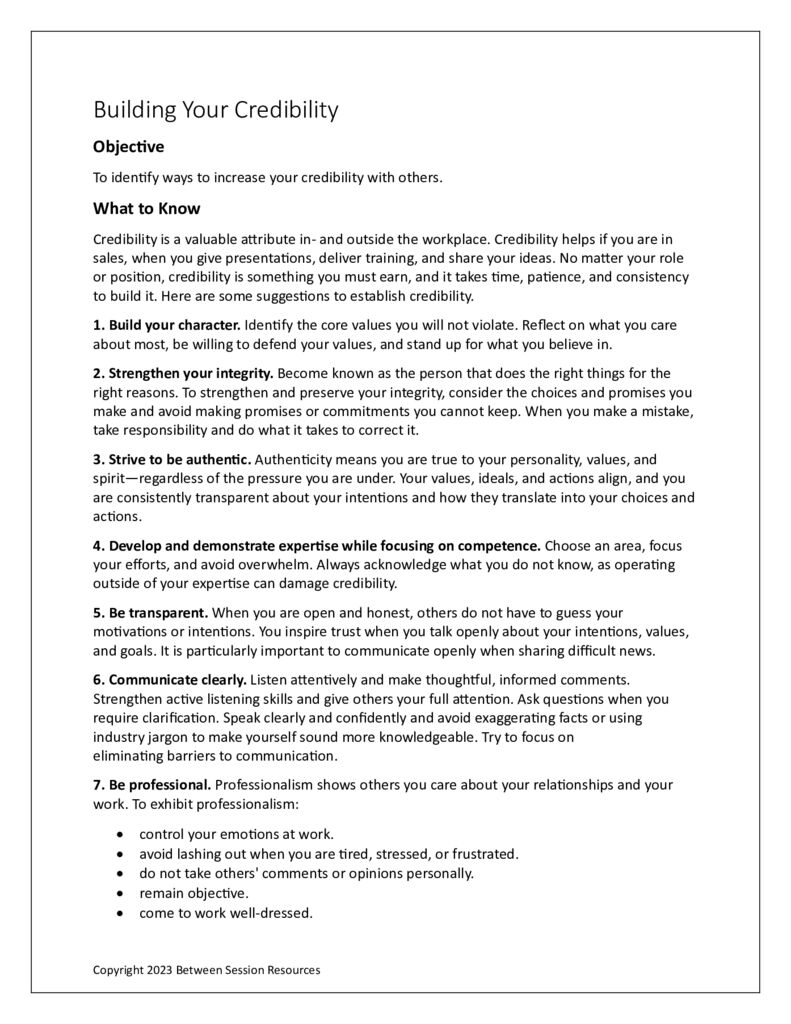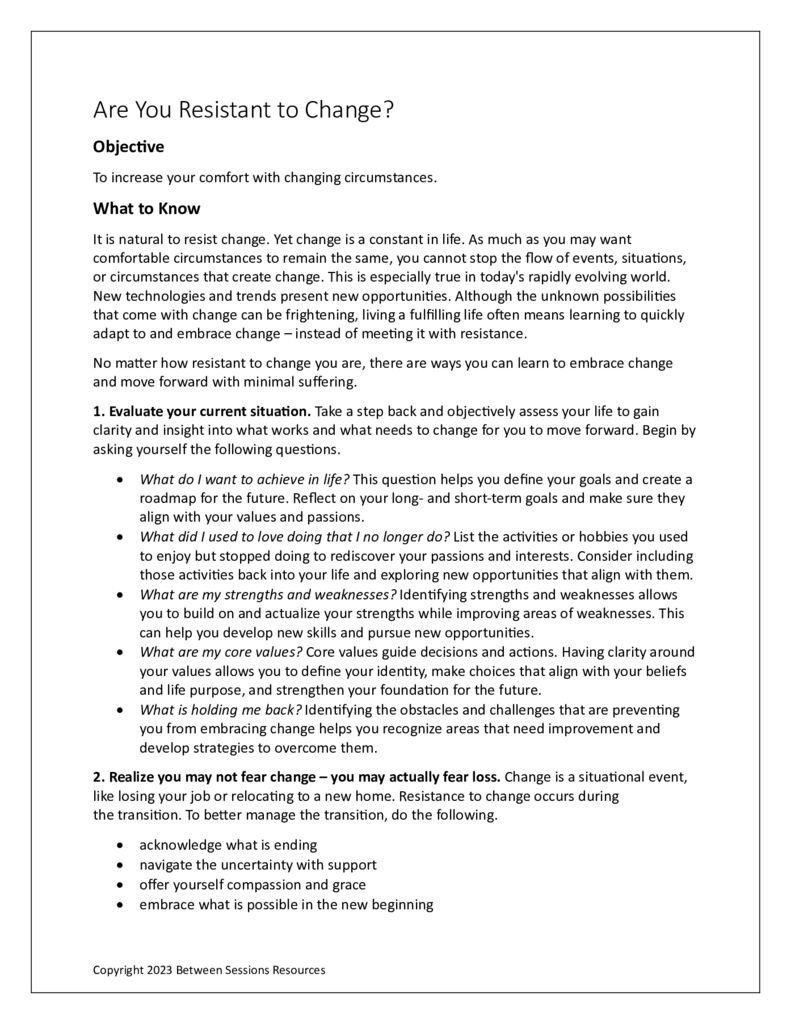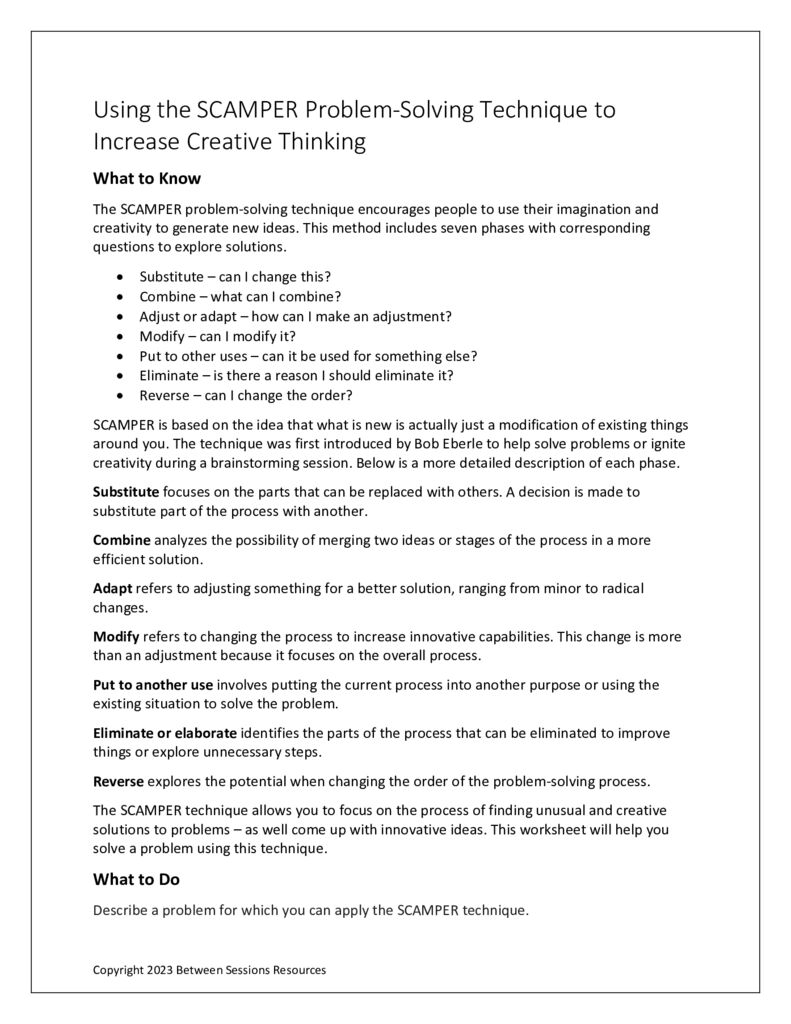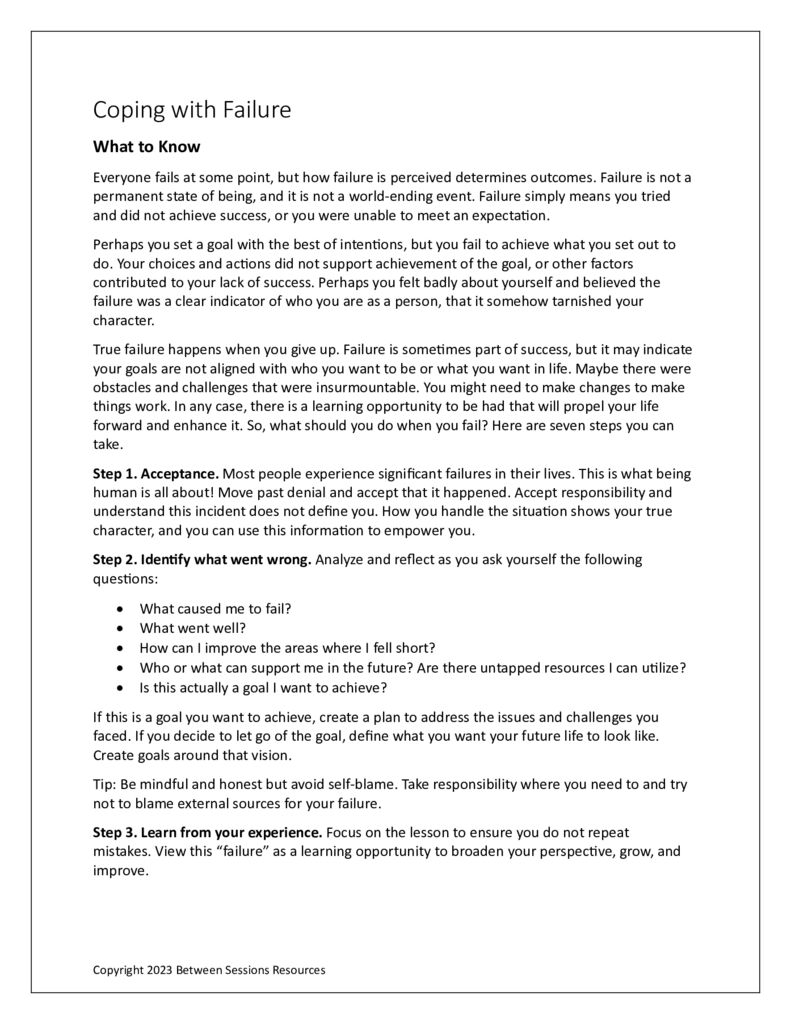This worksheet is designed to help people visually explore and organize their thoughts and feelings. In drawing a map, people are asked to reflect on connections between thoughts and feelings, boundaries that should be put in place, and more. (0524, mind map, insight, planning, coaching)
This worksheet encourages people to explore how they deal with ambivalence in their lives thinking about the pros and cons and the consequences of making changes. It also helps people identify the barriers to change and consider how they can be overcome. (0424, depression, anxiety, relationships, decisions, problem-solving, CBT)
This worksheet explores why some people bounce back from failure while others experience feelings of self-doubt, depression, anger, and disappointment. It suggests 8 ways to overcome the negative feelings that can accompany a failure, including engaging in self-compassion, focusing on the process rather than the results, challenging negative thoughts, and more. The worksheet provides questions to help people explore their feelings of failure and find appropriate strategies to move on. (1023, depression, anxiety, job satisfaction, anxiety)
This worksheet explains the different causes of feelings of “burnout” and provides a checklist that helps people identify the physical, emotional, and behavioral signs that they are being affected by this problem. It goes on to help people identify where their stress is coming from and develop short and long-term goals to address the problems contributing to their burnout. (0823, work stress, family stress, burnout)
This eight-minute audio focuses on helping people become more confident. It is recommended that people listen to it every day for a week. A chart is included to help people keep track of their listening habits and rate their moods before and after listening to the audio. (0423. anxiety, shyness, depression)
This four-minute audio meditation is designed to stimulate problem-solving and creativity. (0323, problem-solving, stuck, stress reduction)
This worksheet is designed to help people build their credibility in the workplace and in the community. It suggests 12 ways to build credibility such as being open to new ideas, being transparent, and communicating clearly. The worksheet includes a chart for people to record their “credibility practices” for a month. (0323, workplace issues, self-esteem, relationships)
This worksheet is designed to help people who resist change, even when change may lead to the resolution of problems and happier lives. The worksheet gives seven strategies to help people see the benefit of changing. It includes questions for people to answer regarding what they fear about change, what is holding them back, and what are their core values. People are challenged to do at least one activity a week that pushes them out of their comfort zone. (0323, coaching, transitions, symptoms)
The SCAMPER problem-solving technique encourages people to use their imagination and creativity to generate new ideas. The method includes 7 phases of exploring solutions. The worksheet takes the user through the 7 steps with in-depth questions. (0123, problem-solving)
This worksheet is designed to help people cope with failure using a 7-step process. (0123, depression, work issues, self-esteem, self-efficacy)


